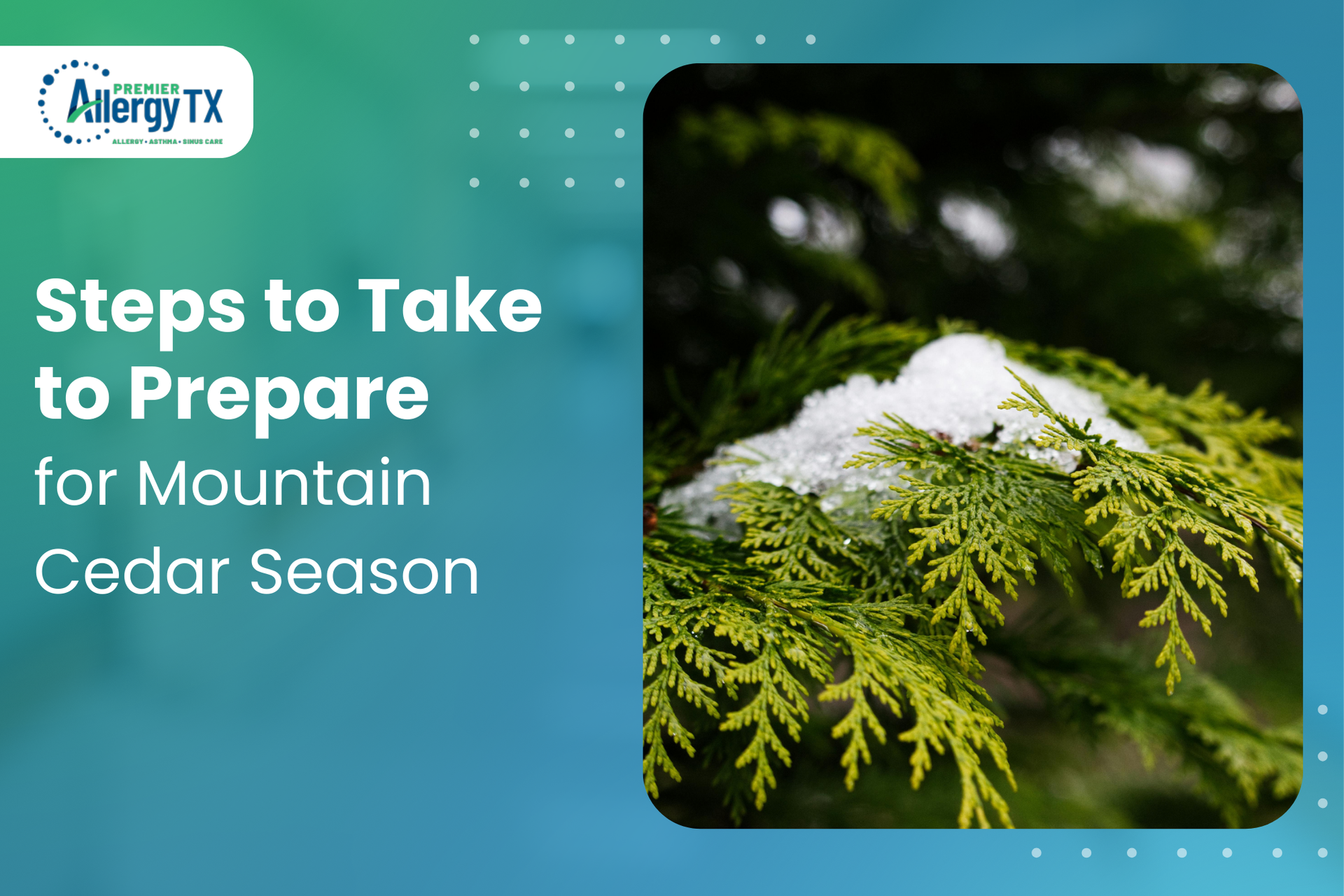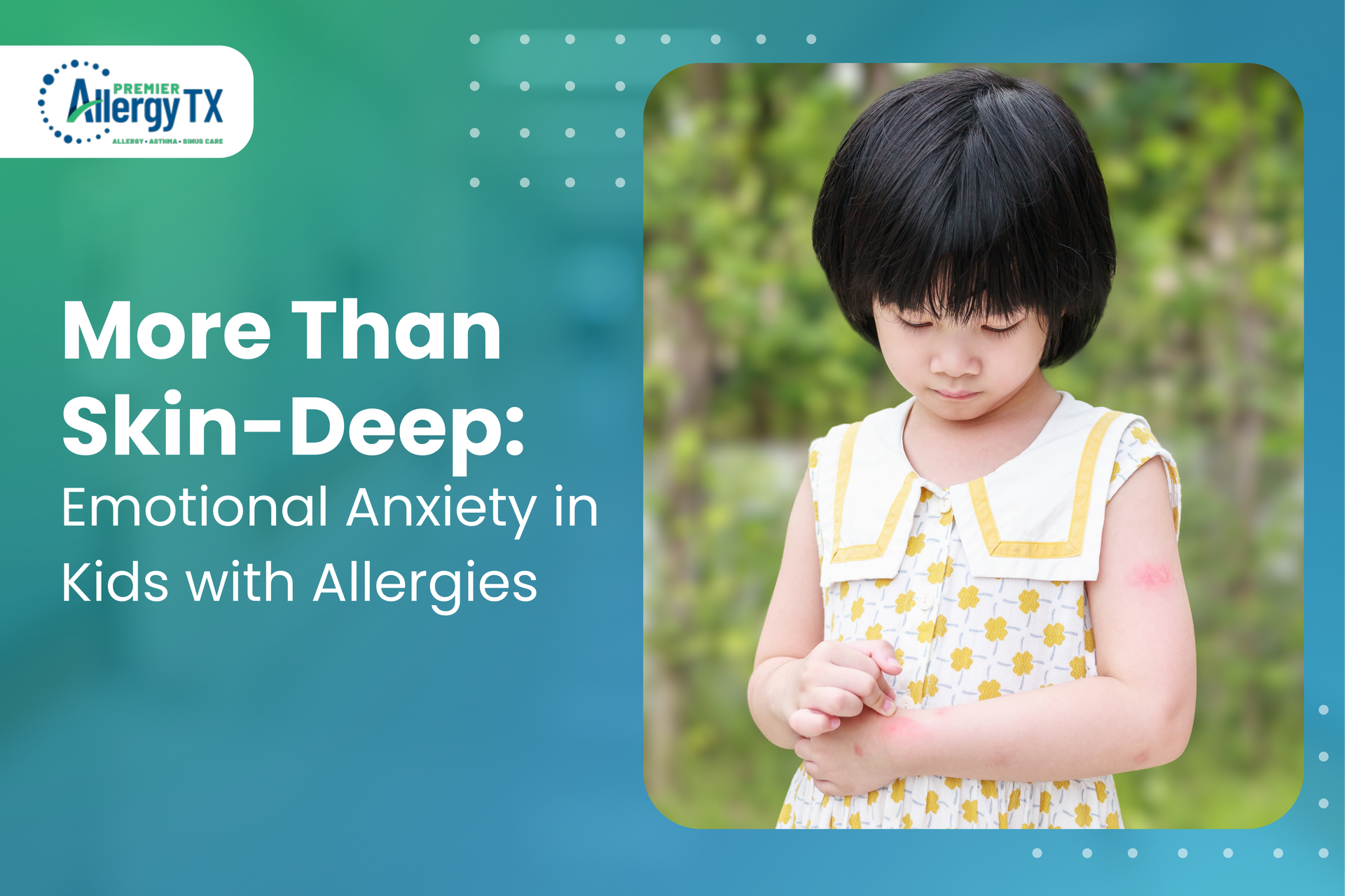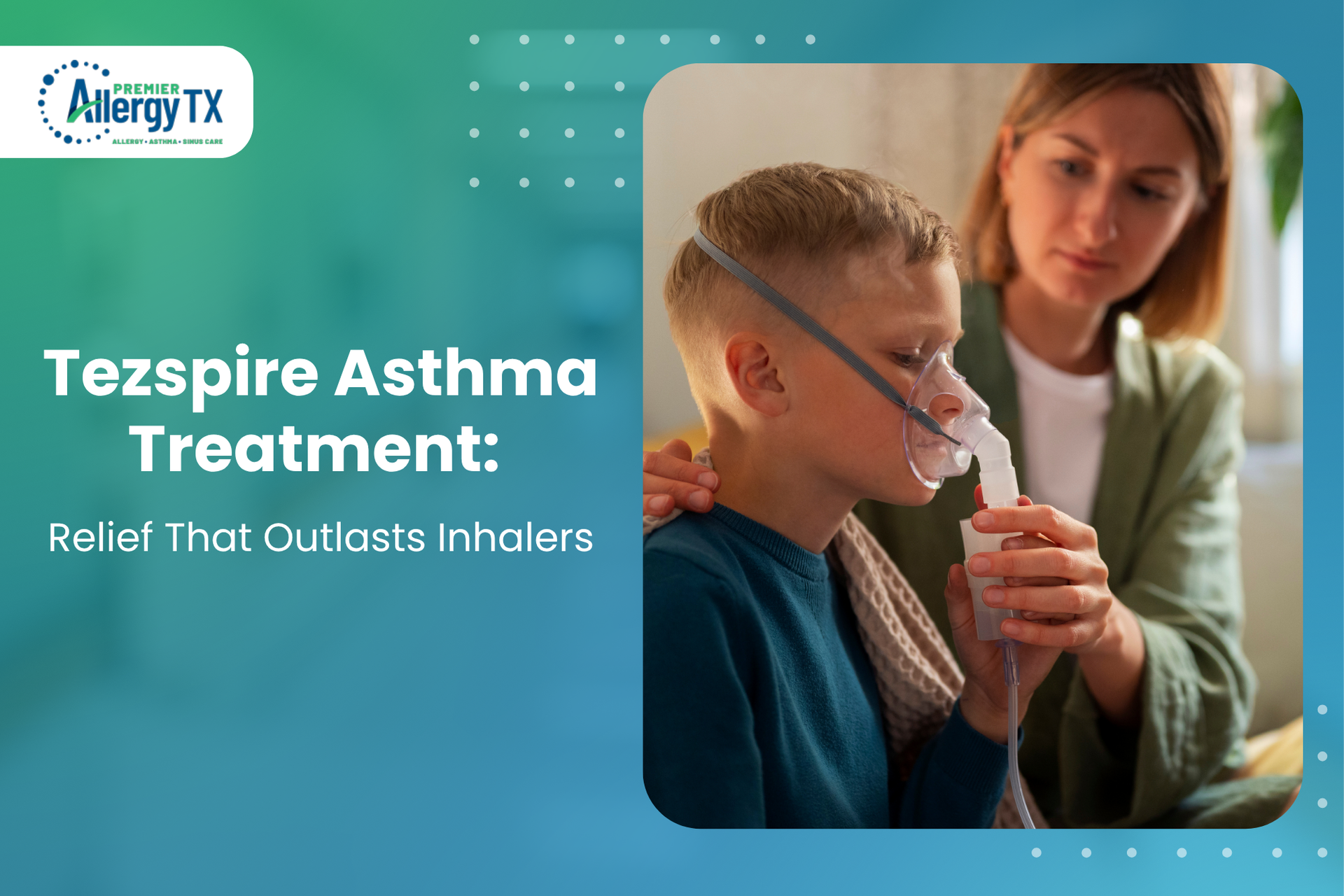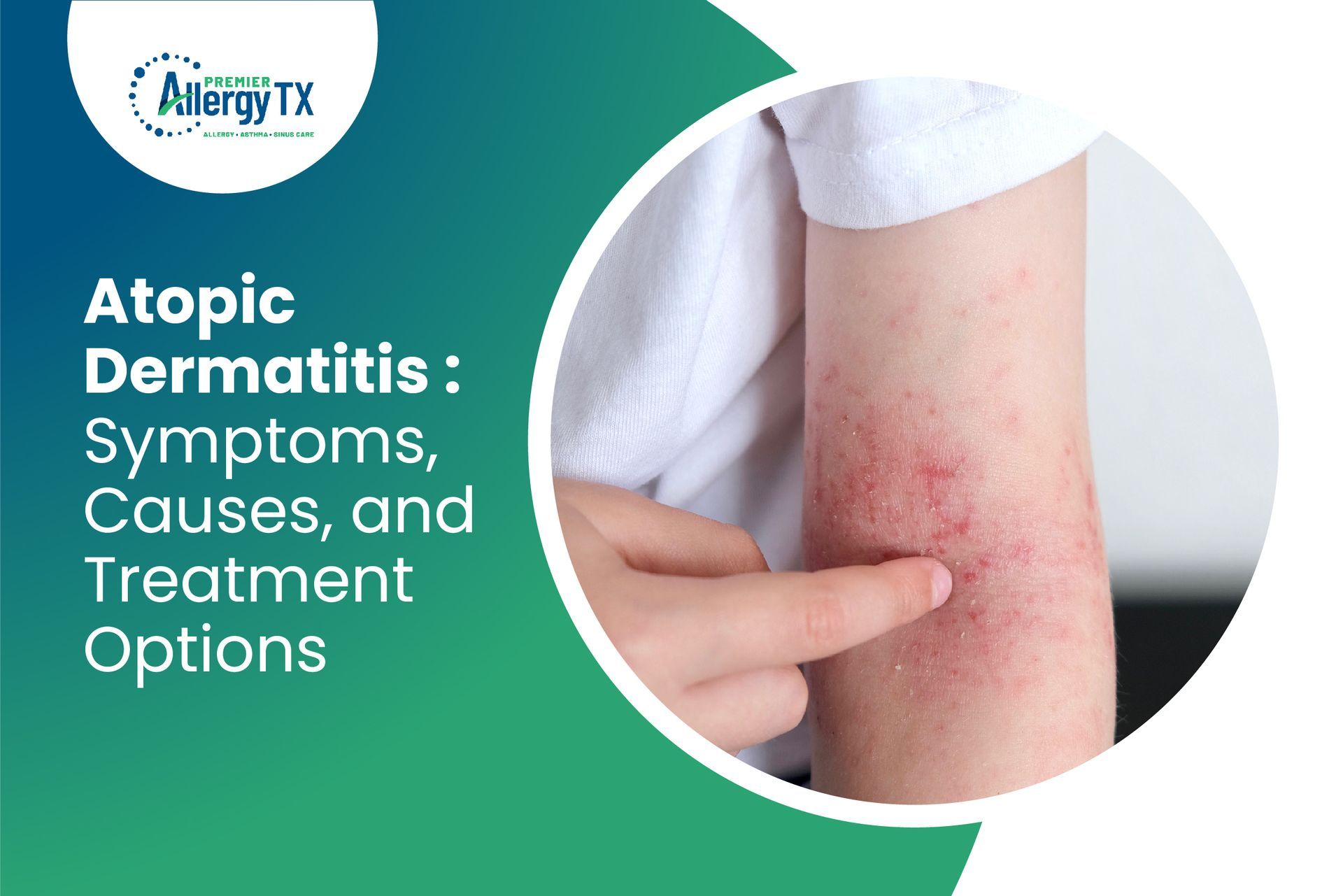In the heart of San Antonio, where the vibrant culture dances with the wind, lurks an uninvited guest—cedar fever. The struggle to distinguish between the notorious
cedar allergy and the common flu is real. Do the sniffles, fatigue, and sneezes indicate that the flu virus is making its seasonal rounds, or is cedar pollen triggering your immune system once again?
Knowledge is our ally in the battle against cedar fever in Texas. This blog is your guide to understanding the nuances of cedar allergies, decoding their symptoms, and ultimately, gaining insights on how to breathe easy and enjoy the holiday season without worry.
Unraveling the Cedar Allergy Conundrum
Cedar Allergy 101
Nestled in the heart of Texas, San Antonio is no stranger to the infamous cedar fever. Cedar mountain allergy often coincides with juniper allergy in Texas, typically occurring during the fall and winter months and lasting well into spring. Mountain cedar, a seemingly innocent part of the landscape, proves to be a source of misery for many. But how do you make sure it’s the real culprit? How do you distinguish cedar allergies from the flu?
Spotting the Symptoms
Let’s delve into the
cedar allergy symptoms and how they differ from the signs of the flu. First, here’s a quick breakdown of the indicators of cedar allergies:
A chorus of sneezes might be your first clue that cedar pollen is in the air. Unlike the flu, cedar allergies typically present with persistent sneezing fits.
If you feel like your nasal passages feel stuffy or full, you might be dealing with allergies rather than the flu.
Cedar pollen has a knack for irritating mucus membranes, leading to those incessantly
itchy eyes and throat, a classic cedar allergy giveaway.
Cedar fever rarely includes a fever, while the flu typically comes with a fever.
Cedar Fever or Flu: The Showdown
In a city where the flu and cedar fever are both common, waking up feeling under the weather can immediately make you question, “Is it the flu or cedar fever? ” Both can bring on fatigue, body aches, and a general malaise. But here’s the kicker – cedar allergies won’t give you the fever commonly associated with the flu virus. Here are the main factors that differentiate cedar fever from the flu:
- Fever: The absence of a fever is a crucial indicator. While the flu often brings on a sudden rise in body temperature, cedar allergies won’t have you reaching for the thermometer.
- Duration of Symptoms: Cedar fever lingers for weeks, sometimes even months, as opposed to the flu, which typically runs its course within a week.
- Body Aches: Flu symptoms often include body aches and pains, sensations less prevalent in cedar allergies. The flu might be the culprit if you feel like a truck has hit your body.
Seeking Respite: San Antonio Allergy & Asthma Center
The Role of Allergy Specialists
In the quest for clarity, the expertise of an
allergy specialist becomes paramount. The
Allergy & Asthma Center in San Antonio is a beacon of hope for those grappling with cedar allergies. Our specialists know how to distinguish between flu symptoms and cedar allergy manifestations.
Tailored Treatment for Cedar Fever
San Antonio allergy treatment isn’t a one-size-fits-all approach. The Allergy & Asthma Center recognizes the unique challenges cedar fever poses in Texas residents and visitors. Our process involves targeted interventions personalized to address the specific triggers and symptoms of cedar allergies.
Cedar Fever Treatment Demystified
Now that you know how to identify what’s behind your sneezes and sniffles, what’s next?
Cedar fever treatment involves a multifaceted approach. The key to effective management lies in preventing and minimizing cedar pollen exposure during peak seasons.
- Antihistamines
Antihistamines are medications that counteract the effects of histamine, a chemical released during an allergic reaction. They help alleviate symptoms associated with cedar allergies, like sneezing, itching, and runny nose.
2. Decongestants
Decongestants work by narrowing blood vessels, reducing swelling in nasal tissues, and relieving congestion. These medications can temporarily relieve nasal stuffiness, a common symptom of cedar fever.
3. Nasal Corticosteroids
Nasal corticosteroids are anti-inflammatory medications that help control inflammation in the nasal passages. They effectively reduce symptoms such as nasal congestion, sneezing, and runny nose associated with cedar allergies.
Read More:
Managing Mountain Cedar Allergies: Early Treatment is Key
Prevention Strategies:
- Staying indoors during high pollen counts
- Using air purifiers
- Wearing sunglasses to protect the eyes from airborne pollen
Frequently Asked Questions About Cedar Fever Treatment
Can cedar fever be managed without medication?
While medication is often a primary component of cedar fever treatment, lifestyle modifications can complement it. These include minimizing outdoor activities during peak pollen times, using air purifiers, and implementing preventive measures. Consulting an allergy specialist is crucial to determine a practical, personalized approach.
Are there long-term solutions for cedar fever treatment?
Long-term solutions for cedar fever treatment involve identifying and addressing underlying triggers. Allergy specialists may recommend
immunotherapy, a process that desensitizes the immune system to allergens over time. This can offer lasting relief and diminish the severity of cedar fever symptoms in the long run.
How often should I seek consultation with an allergy specialist for cedar fever treatment?
The frequency of consultations depends on the severity and persistence of cedar fever symptoms. We recommend scheduling an early consultation for the initial diagnosis and treatment planning. Follow-up appointments may then be scheduled based on individuals’ responses to treatment and the necessity for adjustments or additional interventions throughout the course of the treatment plan.
Clearing the Texas Air: Navigating Flu and Cedar Allergies With Confidence
In the heart of San Antonio, where the battle against cedar fever and flu unfolds annually, arming oneself with knowledge is the key to victory. Recognizing cedar allergy symptoms, differentiating them from the flu, and seeking expert guidance from the San Antonio Allergy & Asthma Center can make all the difference.
As the cedar pollen settles and the flu season wanes, remember – the more you know about cedar allergies, the better you reclaim control over your well-being. Knowledge truly becomes the antidote to the cedar fever conundrum in this juniper-laden landscape.
Are you experiencing the seemingly unending confusion between flu and cedar allergies? Seek clarity with the expertise of
Premier Allergy TX, led by Dr. Freiler. Our specialists excel in personalized cedar fever treatment, as well as other common allergies in San Antonio, TX, ensuring relief tailored just for you. Reclaim your well-being – wave goodbye to confusion and embrace a life free from cedar allergy discomfort.
Don’t let cedar fever dictate your days. Call us today at (210) 791-7856 or click the “Schedule an Appointment” button. Let’s create an environment where the flu and cedar allergies no longer stand in your way.















